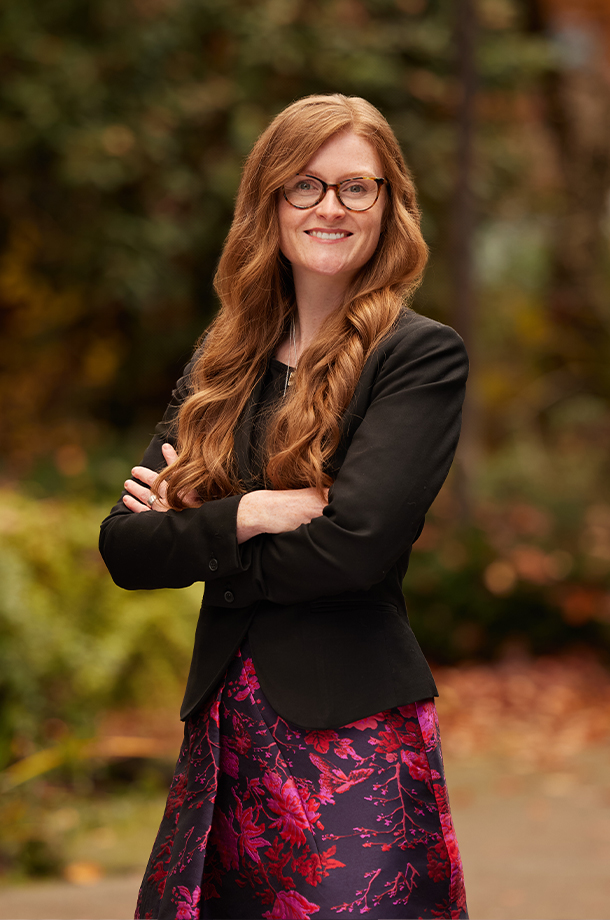
By: Polly Storey and Vivian Thieu
In British Columbia, the Patients Property Act, RSBC 1996, c. 349 (the “Act”), allows the Supreme Court of British Columbia to declare an adult incapable of managing their own affairs (i.e. financial and legal matters) and person (i.e. personal and health care matters), based on the evidence of two physicians licensed to practice medicine in British Columbia.
When such a declaration is made, the adult becomes a “patient” within the meaning of the Act. The Court must then appoint an individual or other entity, such as a trust company or the Public Guardian and Trustee, as the patient’s “committee”. The committee is empowered to step in as the patient’s substitute decision-maker, making decisions on behalf of the patient in accordance with the patient’s best interests.
In a recent series of cases, the Court of Appeal for British Columbia affirmed the principles that govern appellate review of committeeship decisions and when an applicant for committeeship may be indemnified for their legal fees through an award of special costs from the patient’s assets.
Committeeship of Ms. Edwards: Ramsay v. Edwards, 2022 BCSC 2418
Ms. Edwards was 76 years old at the time of the application before the Supreme Court of British Columbia. She was no longer capable of managing herself or her affairs. The Court therefore needed to appoint a committee to make decisions on her behalf.
Ms. Edwards’ brother, Mr. Ramsay, and his spouse, Ms. Dashwood-Jones (the “Petitioners”), applied to be appointed as Ms. Edward’s committees. Ms. Mendres, Ms. Edwards’ niece, opposed the application, and applied to be appointed as committee for Ms. Edwards herself.
The evidence established that prior to 2018, Ms. Edwards and Ms. Mendres had a loving and caring relationship. Ms. Edwards had appointed Ms. Mendres as her attorney and had named her as the Executor and sole beneficiary of her Will. Ms. Mendres had managed Ms. Edwards’ finances and acted as her caregiver. In 2018, however, the relationship between Ms. Edwards and Ms. Mendres fractured, and since then, Ms. Mendres had not had a relationship with Ms. Edwards. The Petitioners had assumed responsibility for management of Ms. Edwards’ care.
The Petitioners argued that it was in Ms. Edwards’ best interests for them to be appointed as Ms. Edwards’ committees. There was evidence from Ms. Edwards’ doctor that she was doing well with the Petitioners directing her care. The Petitioners also argued that in or about 2017, Ms. Mendres began acting inappropriately and inadequately as attorney and caregiver for Ms. Edwards. They pointed to evidence indicating that money had been taken from Ms. Edwards’ account by Ms. Mendres. Ms. Mendres led evidence to the contrary, arguing that she and Ms. Edwards had decided to amicably part ways.
The judge observed that he was unable to decide who was more accurate or reliable. There were many conflicting statements in the affidavits provided by the parties themselves and by acquaintances, friends, and relatives. Given the conflicting evidence, when deciding what was in Ms. Edwards’ best interests, the judge focused on how Ms. Edwards had been doing in recent years and what had been occurring.
The judge found that it was in Ms. Edwards’ best interests for the Petitioners to be appointed as Ms. Edwards’ committees. He noted that the Petitioners had been providing care and assistance to Ms. Edwards and, in some cases, had been paying out of their own pocket for Ms. Edwards’ caregiver expenses. He considered the most significant evidence to be that of Ms. Edwards’ long-time doctor. In addition to the doctor’s evidence that Ms. Edwards had been doing well under the Petitioners’ care, the doctor observed that Ms. Mendres had not been in contact with him for four years. The judge appointed the Petitioners as co-committees for Ms. Edwards, imposing terms on their exercise of authority to ensure Ms. Edwards’ interests and assets were protected.
Ms. Mendres appealed.
Ms. Mendres’ Appeal: Mendres v. Ramsay, 2023 BCCA 137
Ms. Mendres sought to overturn the judge’s Order on a number of bases. She argued that the judge erred (1) by proceeding summarily, i.e. by written affidavit evidence, rather than referring the matter to trial or by directing that “hybrid” procedures apply (such as cross-examination on affidavits); (2) by giving insufficient weight to Ms. Edwards’ wishes as expressed when capable; and (3) by considering the suitability of the Petitioners together, rather than individually.
The Court noted the discretionary nature of an order for committeeship, which means that the Court’s review must be deferential to the judge’s findings and analysis. The Court of Appeal may only interfere with the judge’s exercise of discretion where the judge has acted on a wrong principle or has failed to give sufficient weight to all relevant considerations. With this in mind, the Court turned to Ms. Mendres’ arguments on appeal.
The Court of Appeal affirmed that the starting point for committeeship proceedings is that they are to be decided summarily, based on affidavit evidence. There must be good reason to depart from that to order the use of hybrid procedures or to refer the matter to trial.
The Court held that in this case, the judge made no error in proceeding summarily. The evidence before the judge was sufficient for him to decide the issues. In particular, the relationship between Ms. Mendres and Ms. Edwards had “lain fallow” since Ms. Mendres had stopped providing care for Ms. Edwards in 2018. Since then, care of Ms. Edwards had fallen to the Petitioners, and Ms. Edwards was doing well under their care. These findings were uncontradicted and were relevant to Ms. Edwards’ best interests at the time of the application. The judge gave weight to Ms. Edwards’ most recent experience and to the Petitioners’ knowledge of Ms. Edwards’ current medical conditions.
The Court also held that the judge made no error with respect to the weight given to certain evidence. As affirmed in this case, the weight given by a judge to evidence is a matter particularly within the province of the judge at first instance, and generally outside the purview of appellate intervention.
The Court did, however, agree with Ms. Mendres that the judge had erred by not assessing the suitability of the Petitioners individually, having focused his analysis only on Mr. Ramsay. When assessing the suitability of applicants for committeeship, the trier of fact must address the suitability of each applicant individually. “Failure to do so”, the Court held, “opens the order to intervention”.
Despite this error, the Court declined to disturb the judge’s order, holding that to do so would “put form over substance” in the circumstances. The judge’s reasons demonstrated his understanding that both of the Petitioners had been involved in Ms. Edwards’ care, and there was no evidence that their support had been less than optimal for her. The Petitioners functioned as a unit, and that unit had been beneficial for Ms. Edwards. “There [was] no reason to pry them apart in this family responsibility.”
Following the determination of the appeal on its merits, Ms. Mendres applied for an order that she be paid her special costs of the appeal from Ms. Edwards’ estate.
Costs of Committeeship Proceedings
The leading authority on costs of committeeship proceedings in British Columbia remains the Court of Appeal’s decision in Vieira (Re), 2013 BCCA 420. In that case, the Court held that the ordinary practice is for the successful applicant for committeeship to be awarded their costs payable as special costs on a full indemnity basis from the assets (‘estate’) of the patient. The basis for doing so is that where a committee is appointed, the proceedings are considered to have been in the best interests of the patient, rather than for the applicant’s personal benefit.[1]
The Court has discretion to depart from this practice, including where there are concerns about the applicant’s motives or conduct of the proceedings, or about the ability of the patient’s estate to bear an award for costs. The Court may decide, for example, that a successful applicant should only receive part of their costs. Occasionally, the unsuccessful applicant is ordered to pay a portion of the costs, rather than the patient’s estate bearing the expense of the proceedings.[2]
The same principles that underlie a successful applicant for committeeship receiving their costs often lead to special costs also being awarded to the unsuccessful party from the patient’s estate. In committeeship proceedings, family members sometimes hold differing views of what is in the patient’s best interest. The Court is required to weigh all of the evidence and decide who ought to be appointed. Where the unsuccessful applicant has acted in good faith and without any ulterior motive but is ultimately not appointed, they may nonetheless still be awarded their special costs from the patient’s estate.
Ms. Mendres sought to rely on these principles to seek costs of her appeal.
Ms. Mendres’ Application for Special Costs: Mendres v. Ramsay, 2024 BCCA 378
Ms. Mendres argued that her appeal had merit and was brought to protect Ms. Edwards’ best interests, not for any collateral purpose or to advance her own personal interests. She noted that neither the Court of Appeal nor the Supreme Court had criticized her motives or conduct.
For their part, the Petitioners sought that the ordinary civil costs rules apply – Ms. Mendres, as the unsuccessful party, ought to pay costs.
The Court of Appeal declined to award Ms. Mendres special costs for the following reasons:
- There was not enough information regarding Ms. Edwards’ finances for the Court to be confident that the payment of special costs out of Ms. Edwards’ estate would not negatively impact her financial interests.
- Ms. Mendres’ appeal could not be said to have had merit. Although the Court of Appeal accepted that the judge had erred in not evaluating the Petitioners’ suitability individually, instead treating the couple as a unit, this worked no injustice. Ms. Mendres’ argument put form over substance.
- While it was true that neither Court made findings critical of Ms. Mendres, this did not necessarily support a positive finding that her application and appeal were brought in good faith or to protect and promote the best interests of Ms. Edwards. The record was unclear, and there was evidence that Ms. Mendres had taken money from Ms. Edwards for her own use, that she and Ms. Edwards had had a falling out, and that Ms. Mendres had not been actively involved in caring for Ms. Edwards for some years before the proceedings began. Given this evidence, the appellate court was not in a position to resolve the issue of Ms. Mendres’ motives so as to find as a fact that she was acting entirely in the best interests of Ms. Edwards.
In the result, Ms. Mendres was not entitled to recover her costs. Neither, however, was she required to pay costs to Ms. Edwards’ estate.
Takeaway
Committeeship proceedings serve an important role in adult guardianship, capacity, and elder law in British Columbia, allowing the Court to declare a vulnerable adult incapable and appoint a substitute decision-maker to act on the patient’s behalf and in their best interests.
Ms. Mendres’ application and appeal underscore the discretionary nature of such appointment, and the implications this discretionary nature has for appeals from committeeship orders. Generally speaking, the Court of Appeal is not an opportunity for an unsuccessful litigant to take a ‘second kick at the can’. For committeeship proceedings in particular, the Court will ordinarily be highly deferential to the decision of the chambers judge. Where there are competing applicants for committeeship, the Court is often faced with voluminous, and conflicting, affidavit evidence. The Court must assess this evidence and decide who should be appointed. Where a judge does so and makes no error of law or principle or palpable and overriding error of fact, the Court of Appeal will afford significant deference to the judge’s decision. As such, applicants for committeeship who are unsuccessful in the Supreme Court, and are unhappy with the result, should carefully consider whether the judge’s decision discloses any basis for appellate intervention.
Ms. Mendres’ application for costs also affirms that while it is often the case that successful and unsuccessful applicants will be indemnified for their costs from the patient’s estate, such an order will not necessarily always be made. The Mendres decision serves as an important caution to would-be applicants for committeeship. Bringing proceedings of dubious merit, in circumstances where evidence of good faith is lacking, can lead to an applicant being denied indemnity for costs. In those circumstances, the law will protect the best interests of a vulnerable adult, including their financial interests when deciding costs of committeeship proceedings.
For assistance with your Estate, Trust, Elder Law, or Appeal matters, please do not hesitate to contact Polly Storey or another member of Clark Wilson LLP’s Estates & Trusts Practice Group or Estates & Trusts Opinions and Appeals Group.
[1] Vieira (Re), 2013 BCCA 420 at para 17.
[2] McCoy (Re), 2020 BCSC 2182 at para 8 in Wong (Re), 2023 BCSC 22 at para 15.




